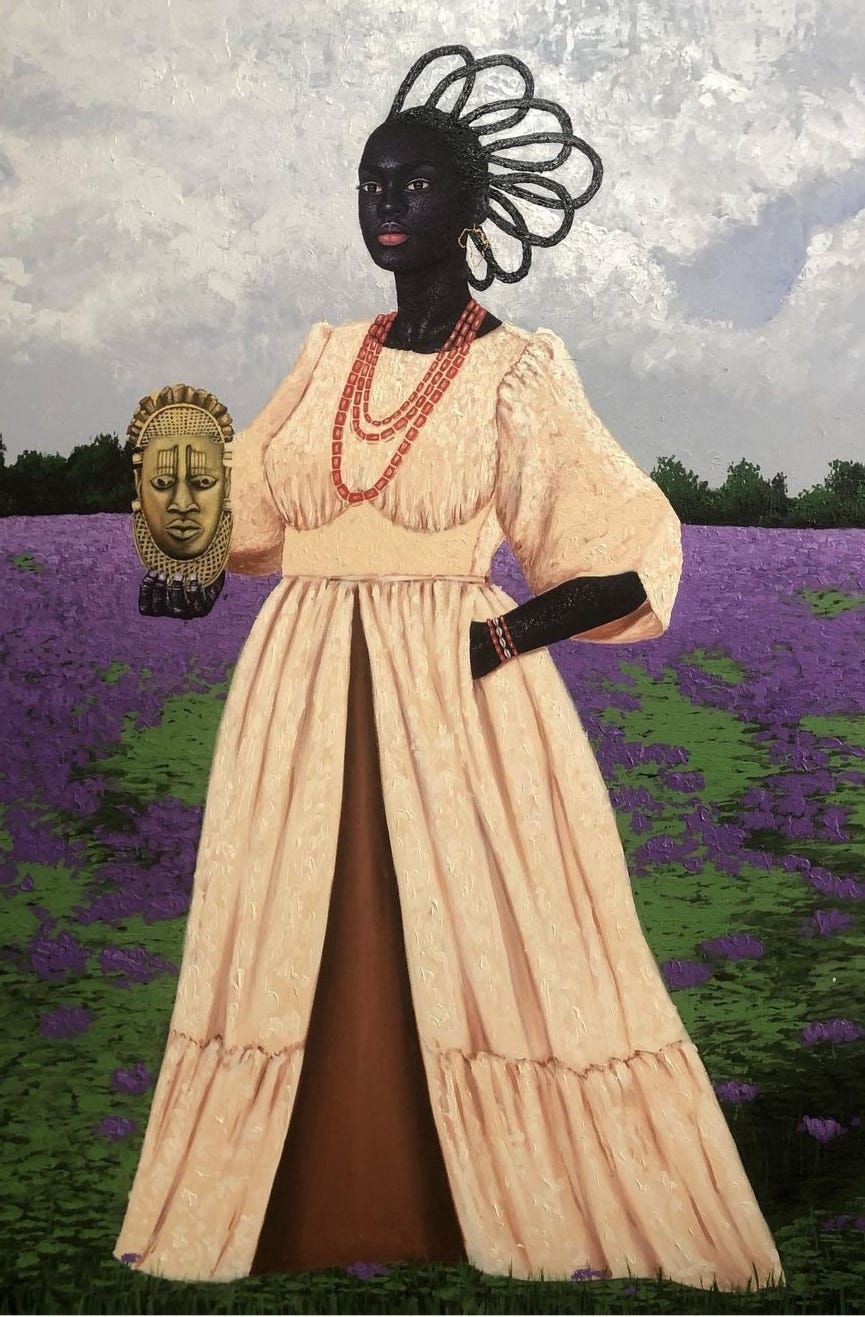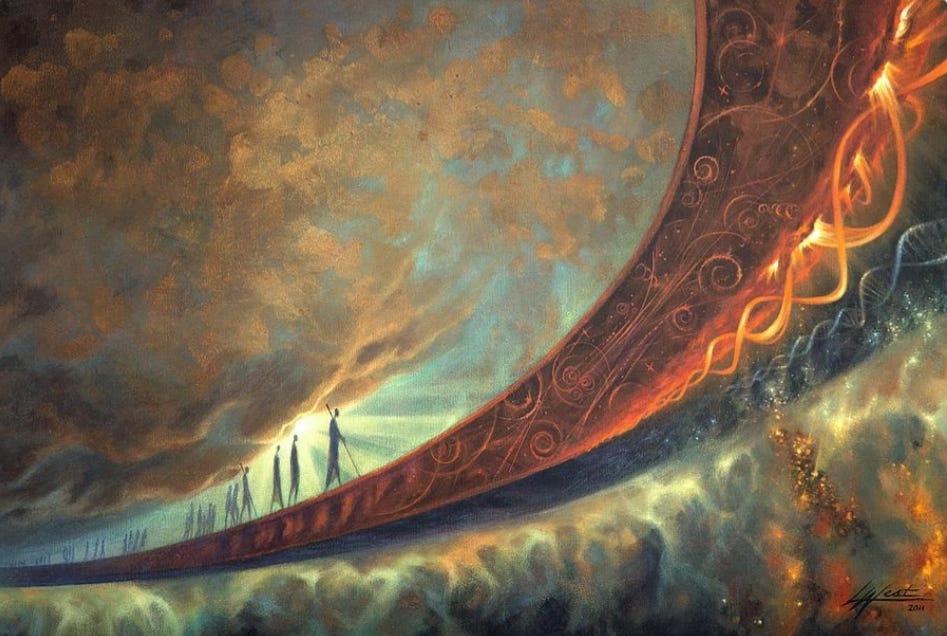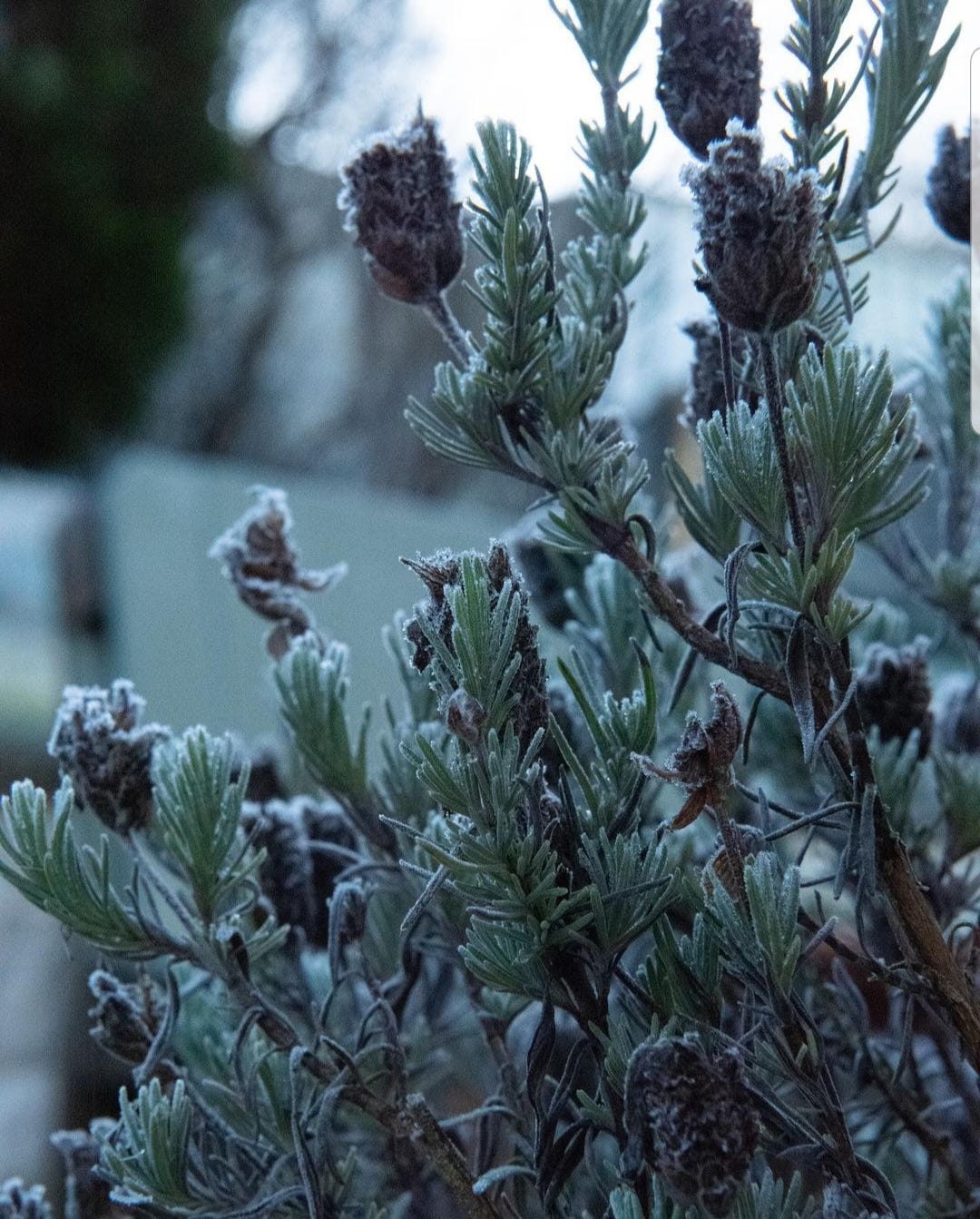Measurements of Time, Relative to You
Dear Readers,
How do you like the sound of that? Readers - as in, more than one of you now. Keyboard keys clacking away, I keep backspacing as I struggle to string together the words to properly express my excitement.
Dear Readers, it is a new year and I am thinking about time and how we measure it. Physics defines time as change or the interval between events in which change occurs. Time, Albert Einstein once said, is what a clock measures. In line with his famous theory of special relativity, time is relative - its passing dependent on one’s frame of reference.
While the hours trickle by on this gray Seattle day I exist in now, you may have already drifted to sleep to the sound of your own rainfall in Morocco’s early morning or are perhaps watching the northern lights in Greenland or embracing summer’s lupines in New Zealand. Is time running ahead of you, Readers, or does it slip between your fingers like molasses?
Debated by philosophers, studied by scientists, time arguably obfuscates more than the daunting premise of space. The misconception of time as an absolute is disproved in our differing experiences within shared events and the time that flows between them. In the wake of the 2020 pandemic, I hear it often: in brief interactions between barista and cutomer, crammed in buses, passing between colleagues, and bouncing between internet strangers on social media. “These past years feel so much longer but so short.”
These strange times we live in (and have lived in, and will live in) engulfs any previous definition of normalcy. Each “unprecendented” outcome, nurtured by decades of negligent public policy and deliberate, malevolent design, slams into society like a long line car crash collision. This is despite the cheerfully loud and ignorant protests of the privileged few, relieved that the pandemic is “over” and they can do away with masks and their civil liberties are no longer under threat of (God forbid) vaccination. While they commemorate the leaving their comfortable homes and going out, I think of the previously heralded “heroes” that never had that privilege. Each time I hear “post-pandemic”, my mind flashes to medias’ death tolls and those like myself impacted by long Covid. I think of how the virus slammed its foot on accelerate on every social issue and exacerbated them.
It has been a long time, the 2010s a distant memory that feels oddly innocent in hindsight. It has also been all to short.
(You see what our old friend Albert meant? Relative.)
Here we are in 2024: four years into pandemic, three years and seven months since protests for Black lives erupted into uprisings (and US police violence has only surged - 2023 was a record year), three years since the January 6th coup attempt in Washington, D.C., almost two years since Russia invaded Ukraine, not even two years since Roe v. wade was struck down, and 103 days since October 7th and the ongoing genocidal siege on Gaza.
Four years, a hundred lifetimes in each.
Given the vast diversity of human experiences, I understand what Dr. Chanda Prescod-Weinstein meant when she said that the time we experience is a social construct.
“If time were measured by the events that filled it, then I have lived two hundred years.”
- Pierre Beaumarchais
As we enter January’s latter half, you may pass by one of our most familiar measurements of time marked half off: the calendar.
My own hangs in the corner of my kitchen, featuring a private mass-produced exhibit of Van Gogh’s paintings. January opens the year with Landscape with Snow. As I consider the solitairy painted figure with only a smudge of a brown acrylic for canine companship, I consider the Gregorian calendar and its international entanglement of schedules and holidays.
Pope Gregory XIII launched this new solar calendar upon the Roman Catholic world less than 500 years ago on February 24, 1582 (and yes, I will be marking my calendar’s birthday underneath next month’s Van Gogh exhibition, Vase with Carnations). As with other calendar’s designs, this reformation was for religious purposes finetuned with mathematical elegance: the calculation of Easter Sunday’s date.
This calendar change rippled across Catholic Europe, and January 1st became the first day of a new year. Protestant Europe, of course, was long resistant and stuck close to the prior Julain calendar as did Eastern Orthodox countries. To accurately track events across the tiny continent, the difference between timelines was marked Old Style versus new Style. England continued to celebrate the new year’s first day in spring on March 25th until 1752. And as colonizers do, their culture forcefully spread - with it, January 1st through December 31st. Other countries adapted - some through little choice under colonization and others to keep up with global change. The most recent country to adopt the Gregorian calendar is Saudi Arabia, determined by the Saudi Cabinet just this fall - a decision praised as good for business.
“The Saudi Council of Ministers’ decision to adopt the Gregorian calendar in all official dealings, procedures regulations and transactions is a welcome move since all other countries use this calendar in all their laws, transactions and procedures,” commented Dr. Osama Ghanem Al-Obaidy, a professor of law at the Institute of Public Administration in Riyadh.
While I consider the Gregorian calendar, I think of how people around the world valued their experiences and how they measured the intervals between nature’s events. I think about the stirrings of mathetmatics and science from observations of the natural world and human bodies’ own internal biological clocks.
The Anishinaabeg people who have lived along Great Lakes Basin since time immemorial traditionally follow a lunar cycle, naming its 13 moons according to seasonal events. The Gichi-manidoo-giizis, Great Spirit Moon, honors the silent stillness of the Great Lakes’ wintery long nights. It is in this wintery quiet, surrounded by community, that stories are shared.
In Japan’s lunar calendar, Mutsuki (睦月) signifies a month of affection - a time to gather close with loved ones in the middle of winter, celebrating the new year after the prior month Shiwasu’s (師走) hurried preparations by monks at the temples for the busiest time of year.
Pre-Christian Norway marked the passage of time on wooden calendar sticks called primstav, one side for their long, dark winters and the other for bursts of summer. Lines marked each passing day, the longest for the seventh.
The Julian calendar is still in use today by the Amazigh people of northern Africa. As determined in the 1960s by the Academie Berbere, an Amazigh cultural association, the Amazigh started counting years from Amazigh Shoshenq I’s ascension to the throne in Egypt in 950 BCE. The Amazigh’s new year, Yennayar, dawned on the evening of January 12, 2024, marking the beginning of 2974.
The most demanding measurer of time is in the corner of your screen right now. Perhaps you’ve spent long seconds of prolonged eye contact with it, counting down to the final release from a painfully slow shift at work or an uncomfortably droll social event. Likely, you’ve let it escape your attention just briefly and startle to find that hours have passed.
The clock.
We have come a long way from sundials, water clocks, incense clocks, and quartz timers. Today’s smartphones and smart watches’ granfather, the wrist watch, only came into popularity after World War I. Before clocks’ attachment to our physical person, they hung from light chains in the form of pocket watches. For a time, in its earliest designs, what the pocket watch lacked in consistent accuracy was made up for in fashion.
My fascination of watches and clocks and time has evolved into a fixation. This fixation birthed and continues to nurture the start of a story.

Pieces of history, odd interests spurred by my curiosity, vivid dreams from childhood, and everyday stories help inform the building plot of Ephemeral Kingdoms, my hopepunk fantasy work-in-progress. One of its main characters sprung from the escapements of an antique pocket watch, scattered pamphlets, covert meetings, and helpless rage turned to action.
In the first book of Ephemeral Kingdoms, Hélène Caron is a watchmaker who is endlessly fascinated by life’s mechanisms. She enjoys taking things apart, analyzing each piece like the escapements of her clocks, and putting them back together. In Hélène’s world, ruled by imperial monarchs and aristocrats who are the sole practitioners of magic, science is an emerging magic all on its own.
Until next time, however long that may be for either of us,
aleksander aleksander
Recent joys:
The wonderful discovery of theoretical physicist and Black feminist theorist Dr. Chanda Prescod-Weinstein, Associate Professor of Physics and Core Faculty Member in Women’s & Gender Studies at the University of New Hampshire. Her book, The Disordered Cosmos: A Journey into Dark Matter, Spacetime, & Dreams Deferred, is now officially on my To Be Read list. Until I get my hands on that, I encourage you to also check out her fantastic newsletter The Edge of Space-Time.
Today’s favorite listen is from singer Carsie Blanton. Enjoy her live performance of original song “Rich People”.
The NDN Girls Book Club is a fantastic source for book recommendations by Native authors. More importantly, their mission as literary program for and by Native people brings youth writer workshops, author talks, and free books by Native authors to Native communities. You can support NDN Girls Book Club AND a beloved Indigenous-owned bookstore, Quiet Quail Books, by buying books for Indigenous youth here.
This week, I participated in a writing challenge hosted by
. Each month, in her newsletter , Abigail shares a one-worded prompt and writers across Substack race to respond in under three minutes. This month’s prompt was “dawn” - appropriate, given the dawn of a new year - and this new Substacker was delighted to have their entry chosen for the Top Shelf!
“Reading this feels like being stuck in a whirlwind, a beautiful, chaotic, grounding whirlwind. There’s a wonderful rhythm between cortisol and crashing alarms, almost like the ticking down of a clock. A wonderful take on ‘dawn’!”
- Abigail Mann
You can read my entry in my recent notes or - better yet - pay Abigail’s newsletter a visit.
Curious About You
Do you have a calendar that you follow outside of the Gregorian calendar for cultural or religious reasons? What is the most important holiday or event you have in this calendar?
What has been the shortest year in your life, and what was the slowest minute?
How do you measure time in your life?







